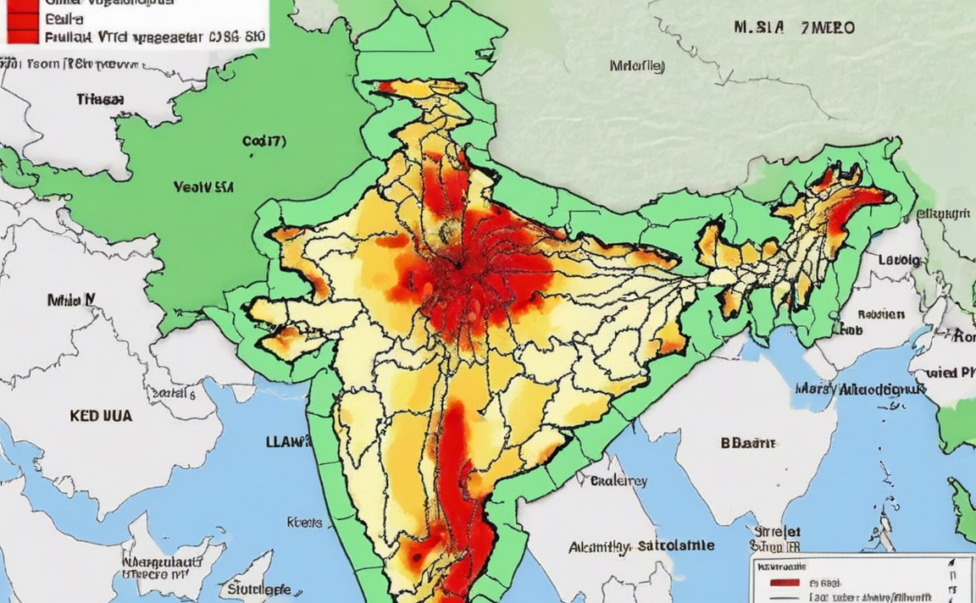Tripura Earthquake Update: Today’s Magnitude Revealed
An earthquake is a natural disaster that can strike without warning, causing widespread destruction and loss of life. On October 21, 2021, Tripura, a state in northeastern India, experienced a significant earthquake that sent tremors through the region. The earthquake, measured at a magnitude of 5.5 on the Richter scale, shook buildings, triggered panic among residents, and raised concerns about the region’s seismic activity.
Understanding Earthquakes
Earthquakes are caused by the sudden release of energy in the Earth’s crust, resulting in seismic waves that shake the ground. The magnitude of an earthquake is a numerical value that indicates the earthquake’s size and intensity. The Richter scale, developed by Charles F. Richter in 1935, is commonly used to measure earthquake magnitude.
Tripura Earthquake: Impact and Aftermath
The recent earthquake in Tripura had a magnitude of 5.5, which is considered moderate but still capable of causing damage to buildings and infrastructure. The epicenter of the earthquake was located near the town of Ambassa in the Dhalai district of Tripura. The tremors were felt across the state and in neighboring regions, including parts of Bangladesh and Assam.
Reports from the ground suggest that the earthquake caused minor damage to buildings in some areas, including cracks in walls and ceilings. Thankfully, there have been no reports of casualties or serious injuries resulting from the earthquake. However, the situation is still being closely monitored to assess any hidden damages or long-term effects.
Factors Contributing to Earthquakes in Tripura
Tripura, like many other regions in India, is located in a seismically active zone, making it prone to earthquakes. The region falls within the Himalayan seismic belt, where the Indian tectonic plate collides with the Eurasian plate, leading to frequent seismic activity. The movement of these tectonic plates creates stress within the Earth’s crust, which is released in the form of earthquakes.
Seismic Hazard Preparedness
Given Tripura’s vulnerability to earthquakes, it is essential for residents and authorities to be prepared for such natural disasters. Building codes and regulations should be enforced to ensure that structures are earthquake-resistant. Emergency response teams should be trained and equipped to handle earthquake-related emergencies swiftly and efficiently.
Stay Informed and Stay Safe
In the event of an earthquake, it is crucial to stay calm and seek shelter in a safe location, away from windows, heavy furniture, and other hazards. After the shaking stops, check for any injuries and assess the damage to your surroundings. Keep a emergency kit with essentials such as water, food, medical supplies, and a flashlight in case of prolonged disruptions.
Frequently Asked Questions (FAQs) about Earthquakes in Tripura
Q: Are earthquakes common in Tripura?
A: Yes, Tripura is located in a seismic zone and experiences earthquakes periodically.
Q: What should I do during an earthquake?
A: Drop, Cover, and Hold On. Drop to the ground, take cover under a sturdy piece of furniture, and hold on until the shaking stops.
Q: How can I prepare for an earthquake in Tripura?
A: Secure heavy furniture, practice evacuation drills with your family, and have an emergency kit ready.
Q: What are the signs of an impending earthquake?
A: Earthquakes usually strike without warning, but some signs like unusual animal behavior or ground deformation may be observed.
Q: Can earthquakes be predicted?
A: While scientists can forecast areas prone to earthquakes, predicting the exact time and magnitude of an earthquake is currently not possible.
Q: Is it safe to stay inside during an earthquake?
A: It is safer to stay indoors during an earthquake and take cover under a sturdy piece of furniture, away from windows and heavy objects.
Q: How long do earthquakes typically last?
A: The shaking during an earthquake usually lasts for a few seconds to a minute, depending on the magnitude of the earthquake.
Q: What should I do after an earthquake?
A: Check for injuries, assess damage to your surroundings, and follow emergency protocols for evacuation if necessary.
Q: Can aftershocks occur after the main earthquake?
A: Yes, aftershocks are smaller earthquakes that occur after the main earthquake and can continue for days or weeks.
Q: How can I help earthquake victims in Tripura?
A: You can donate to reputable organizations involved in relief and recovery efforts or volunteer your time to assist those affected by the earthquake.
Conclusion
Earthquakes are a natural phenomenon that can have devastating consequences if proper preparedness measures are not in place. Stay informed, stay safe, and be ready to respond swiftly in the event of an earthquake in Tripura or any other seismic zone. By following safety guidelines and being proactive in your earthquake preparedness, you can minimize the risks and impact of these powerful geological events.

